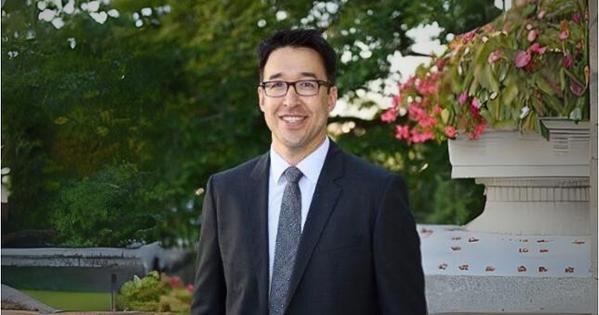5 Questions with Jordan Matsudaira

This month, SPA welcomed Jordan Matsudaira to SPA as a Professor in our Department of Public Administration and Policy. Matsudaira brings a wealth of experience to SPA, particularly in the realm of education policy, as his research focuses on using government administrative data to understand the causal impact of education and labor market policies and institutions on the economic outcomes of low-income Americans. Previously, Dr. Matsudaira served on the faculty of Teachers College at Columbia University, and was also a visiting associate professor at the School of Public and International Affairs at Princeton University. He has experience in public service, serving as Chief Economist on the Council of Economic Advisers from 2013-2015 during the Obama Administration, and most recently, serving in the U.S. Department of Education, as Deputy Under Secretary and (inaugural) Chief Economist until joining SPA this month.
Read on to find out why Dr. Matsudaira decided to make the move to SPA, and what he’s most excited to work on in his new role.
- What drew you to come to American University and SPA?
It’s a great institution and a great group of policy researchers, especially in the areas I’m most interested: education, social welfare, labor, and health policy. I’ve worked making federal policy in the White House and in the Department of Education in the Obama and Biden Administrations. Having a home base at American University in Washington, D.C. makes it easier for me to stay in contact with policy making in the areas I care about, and to be helpful where I can. I’m also excited to work with students who are either already or planning on working on federal policy issues, and to help give them skills to have a greater impact on the issues they care about.
2. You’re an economist who is also interested in education policy. How do those two areas go hand-in-hand?
Well, modern economics is a wonderfully diverse field and there are a lot of different touch points where economic frameworks and theories might shed light on education policy. My recent stint in policy making was heavily focused on improving our system of higher education finance – that has much to do with classic economics topics like understanding the extent to which subsidizing the cost of college will lead more students (and which students) to enroll; whether students understand and respond to implicit subsidies for college through loans that might be forgiven in the future if they pursue public sector careers or end up with low earnings; whether some colleges might be created to meet higher student demand due to greater subsidies for college; and what are the returns to different types of college credentials. This is a just a small and narrow set of examples of how economics intersects with education policy. I tend to teach quantitative methods (econometrics) classes, and these tools are critical for building knowledge of what works for all types of policy and regardless of people’s disciplinary background.
3. You served on the Council of Economic Advisers during the Obama Administration. How does that inform your research today?
Working directly with policy makers in the White House really helps understand what types of questions need answers in order to move policy forward, and what types of answers are relevant. The experiences I’ve had both motivate me and give me better insights into knowing what research questions need to be addressed to craft better policy to make higher education more accessible and more effective in promoting upward mobility. My experiences in government had a profound impact on how I build a research agenda.
4. You were the Department of Education’s inaugural chief economist. How did that come to fruition and what did that role entail?
During my time in the Council of Economic Advisers (from 2013-2015) I often felt we could have better data and analyses to inform policy choices around higher education policy, since the Department of Education sits atop vast administrative data on over 150 million students who’ve received federal support to attend college. At the time I recommended setting up a Chief Economist Office in the Department to help learn from all those student stories about what helped or hindered their success. Fast forward to the Biden Administration, and both Secretary [Miguel] Cardona and Under Secretary [James] Kvaal recognized the value in such an office and supported its creation. I recruited some amazing academic and policy researchers to join me in setting up the Office, and think we did some impactful work. We helped design large and transformative new policies around debt relief, loan repayment, and higher education accountability policy. We worked with outside researchers to experiment with different modes of outreach to borrowers to learn how to connect them more effectively with key support services. And we started a lot of key policy research projects that will hopefully build a foundation of evidence for better policy in the future.
5. What research are you working on now that you’re most excited about?
Working directly trying to craft policy is always humbling because you realize all the things we don’t yet know that would be helpful to figure out how to take on the biggest problems. Having worked a lot on higher education finance, affordability, and accountability I’ve got a long list of those questions I want to start generating answers to. I’m excited about potentially starting a new research center at SPA dedicated to generating rigorous and policy relevant evidence, hopefully together with lots of other researchers in the same or nearby fields.
Maybe even more than that, I’m excited to help with the research that SPA’s graduate students are working on — I miss getting to work with graduate students and supporting them in pursuing all their great research questions.
